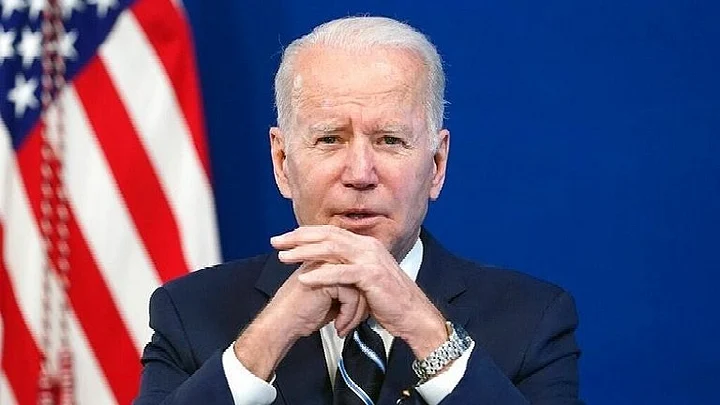United States (US) President Joe Biden on Monday, 23 May, declared that the US would intervene militarily to defend Taiwan against a Chinese intrusion, saying that Washington was "committed to supporting peace and stability in Taiwan Strait."
Meanwhile, China's foreign ministry spokesperson Wang Wenbin retorted to Biden's warning, saying that Taiwan was an inalienable part of China's territory, AFP reported.
"America is committed to a one China policy but that does not mean China has the jurisdiction to use force to take Taiwan," Biden said, adding that "my expectation is that will not happen."
Saying that China was "flirting with danger" with its recent manoeuvres over the self-governed nation of Taiwan, Biden's statement came as a stark warning to China.
Speaking to reporters in Tokyo on the second day of his visit to Japan, Biden had said that the "United States stands firmly with Japan, and other nations to not let China take over Taiwan."
When asked about learnings from the Russia-Ukraine crisis and China's exposure to Putin's excesses in the region, he asserted that it was "important that Putin pay a price for his barbarism in Ukraine."
"Russia has to pay a long-term price," the president added.
The Communist Party of China considers Taiwan to be a breakaway province, and President Xi Jinping has clearly said that Taiwan "must and will be" reunited with China. However, few in Taiwan wish to be merged with the Chinese mainland.
Taiwan is an Internal Matter of China: Official
Meanwhile, Wenbin underlined that the Taiwan issue was a "purely internal affair for China." He further added, "On issues touching on China's core interests of sovereignty and territorial integrity, China has no room for compromise."
Wenbin also said that China's resolve and strength to defend its national sovereignty and territorial integrity should not be underestimated.
Biden Unveils Asia-Pacific Trade Bloc
Further, the US president on Monday launched the Indo-Pacific Economic Framework for Prosperity (IPEF), aiming to "create a stronger, fairer, more resilient economy for families, workers, and businesses in the United States and in the Indo-Pacific region."
The launch came ahead of the QUAD summit scheduled for Tuesday.
The framework includes Australia, Brunei, India, Indonesia, Japan, Malaysia, New Zealand, the Philippines, Singapore, South Korea, Thailand, and Vietnam.
However, the initiative is a departure from traditional trade blocs in one key aspect – instead of negotiating tariffs and broadening market access, the IPEF members will establish a partnership by agreeing on standards for the digital economy, supply chains, clean energy infrastructure, and anti-corruption measures.
Further, the IPEF is reportedly intended to provide an alternative to US allies in a region of China's increasing commercial presence, AFP reported.
A White House press release stated, "The United States and our partners in the region believe that much of our success in the coming decades will depend on how well governments harness innovation — especially the transformations afoot in the clean energy, digital, and technology sectors — while fortifying our economies against a range of threats, from fragile supply chains to corruption to tax havens."
(With input from AFP.)
(At The Quint, we question everything. Play an active role in shaping our journalism by becoming a member today.)
